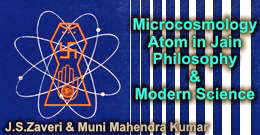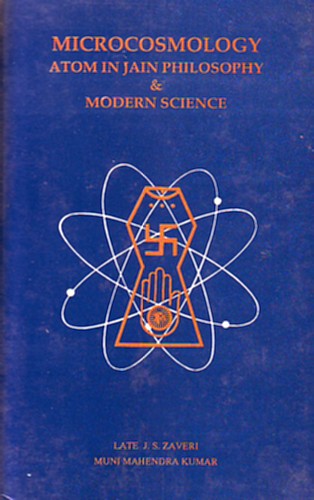
Pudgala - Classification
Generally, largeness is equated with grossness (sthaulya) and smallness is equated with subtlety (sauksmya). However, size is not the criterion in this classification. Gross is that which prevents other substances to pass and which can be stopped by others; or which cannot occupy space which is already occupied by others or which cannot pass through others and which does not allow others to occupy the space occupied by it.
Conversely, subtle is that which does not hinder others and cannot be hindered by others (or which can occupy the space which is already occupied by others or can pass through others), E.g. a mustard-seed is smaller in size compared to a drop of water but whereas water can pass through a cloth, the mustard seed cannot. Therefore, water is subtle, mustard is gross.
From the point of view of penetrability pudgala is divided into six classes: 1
- Badara-badara means gross-gross, i.e., very gross. This kind consists of very large solid aggregates of pudgala such as mountains, rocks, wood, etc. which do not unite by themselves when broken or divided, and also such bodies which can be physically transported without a container.
- Badara means gross. This kind consists of large aggregates of pudgala in liquid-form such as water, oil, milk, juice, etc. which become united again by themselves when broken or divided, and which have to be carried in containers.
- Badara-suksma means gross-subtle. This kind consists of aggregates which can either be cut nor broken, nor can be physically transported, but are visible, e.g., light, shadow, image, etc.
- Suksma-badara means subtle-gross. This kind consists of aggregates, which are not visible, but can be perceived by other four senses - ultra-visible, but infra-sensual, e.g., gases.
- Suksma means subtle. This kind consists of aggregates, which are ultra-sensual, i.e., they are not perceivable by any sense-organ. However, they interact with jiva and are transformed by it in the form of thought, speech, karma, etc.
- Suksma-suksma means extra-subtle. This kind consists of aggregates which are so subtle that they do not interact with jiva. They include the aggregates which are composed of less than infinite number of ultimate atoms upto two atoms.
 Jethalal S. Zaveri
Jethalal S. Zaveri
 Prof. Muni Mahendra Kumar
Prof. Muni Mahendra Kumar

